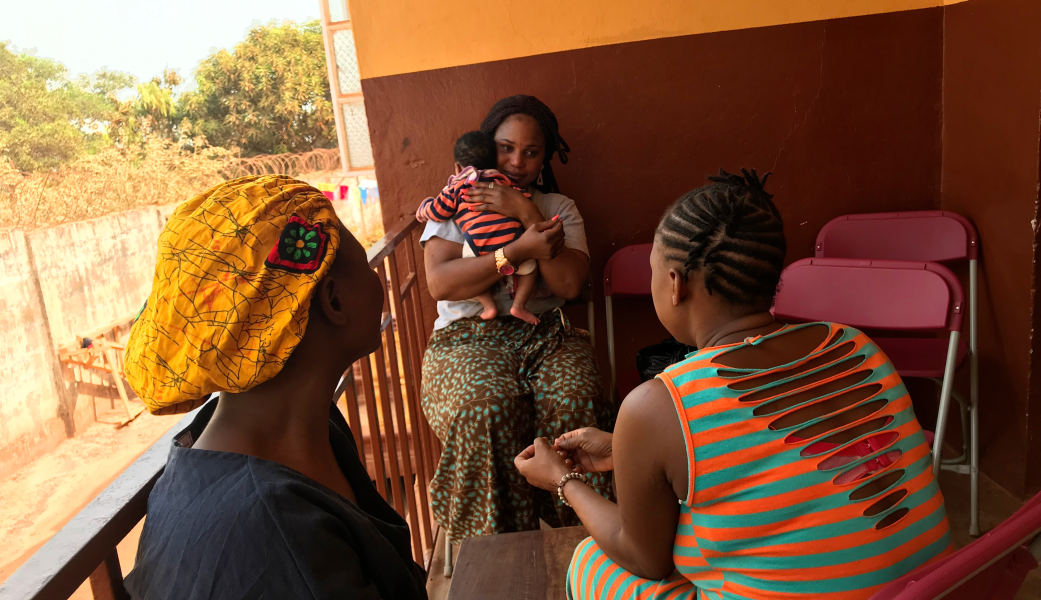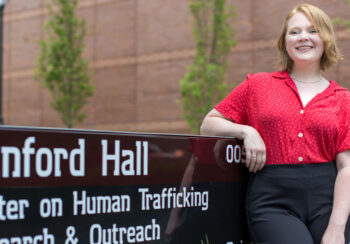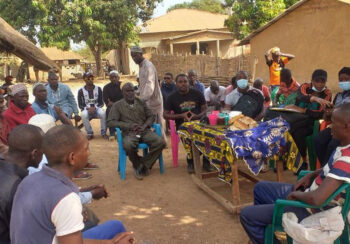Child labor and child trafficking affects a significant number of children in Sierra Leone, and investigating the past might provide some answers for how best to aid survivors, according to Elyssa Schroeder, a doctoral student in social work at the University of Georgia.
Schroeder received a $10,000 seed grant from the International Labor Organization, a United Nations agency. She’ll use the funding to analyze four years of data to understand trafficking survivor demographics, the kinds of services survivors received and how those services affected outcomes in mental health, physical health and social reintegration.
“This information can really tell us what gaps exist in assessment and how we can fill those gaps,” said Schroeder, an African Programming & Research Initiative to End Slavery (APRIES) pre-doctoral fellow at UGA’s Center on Human Trafficking Research and Outreach (CenHTRO). “Also, what patterns are there? Do survivors from a specific area face different challenges from another area? Is there a certain age group that we are seeing more of that can be targeted for prevention?”
Looking into the past means combing through old case files of trafficking survivors, according to Schroeder. In Sierra Leone, those case files are supplied by World Hope International (WHI), an NGO operating the only residential child labor trafficking program in the country. Schroeder’s project builds on other West African anti-trafficking research, programming and policy efforts operated by APRIES in Sierra Leone, Senegal and Guinea. Findings that emerge from the fellowship will improve programming for child trafficking survivors and inform policy through APRIES’ work with governmental agencies in Sierra Leone.
“It’s a loop,” Schroeder said. “We need the research to improve programming, and we need programming to really improve research.”

Following the case analysis, Schroeder and the APRIES research team will work alongside WHI to reevaluate and redesign old policies and protocols, as well as create new assessment tools, that will be employed at the NGO’s residential facility and in hotspots in eastern Sierra Leone. This collaborative process will also incorporate survivor voices, an essential aspect to community-based participatory research. Organizing the study as a co-design—which brings researchers and community members together as partners—is novel for anti-trafficking research in a non-Western setting.
“This is creating the framework for building programs that are culturally aware, culturally rooted, trauma-informed, survivor-centered, that meet the needs of individuals and the community,” Schroeder said.
David Okech, social work professor and CenHTRO director, will mentor Schroeder.
“This is a great opportunity for Elyssa, and it demonstrates her stature as a rising scholar in human trafficking,” Okech said. “It is also significant that the fellowship builds into her dissertation research, thus allowing her to engage deeper with local agencies in Sierra Leone as part of a genuine community-based research and community-engaged scholarship. Elyssa is one of our shining students, and kudos to her for this competitive award.”
CenHTRO is an international, interdisciplinary effort to combat human trafficking around the world through research, programming, and policy development. Established in the UGA School of Social Work, CenHTRO aims to enhance the science of human trafficking prevalence measurement worldwide; implement effective anti-trafficking policies and programs that protect victims, prevent trafficking and strengthen prosecution; and equip the next generation of human trafficking researchers with expertise that will enhance social justice for trafficking survivors and victims. The center’s ongoing projects include APRIES and the Prevalence Reduction Innovation Forum.






